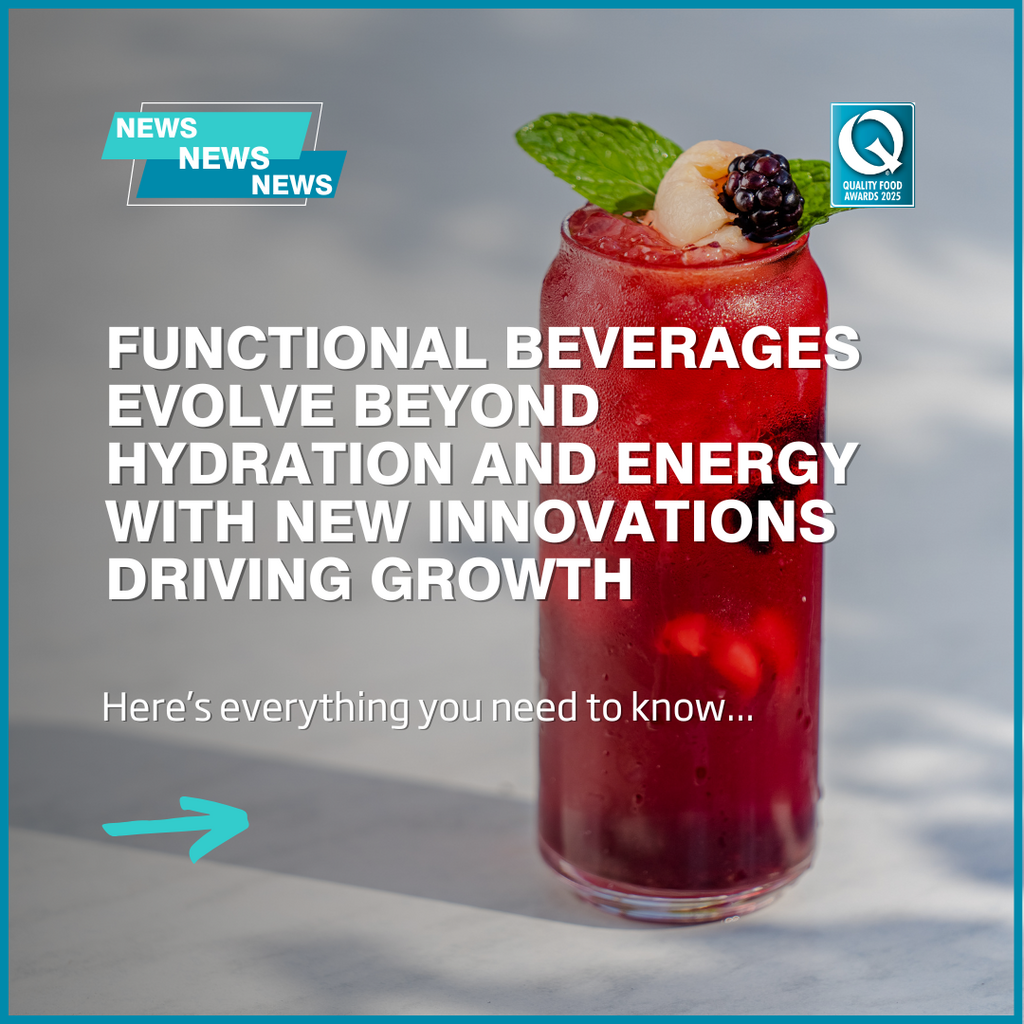
Functional beverages evolve beyond hydration and energy with new innovations driving growth
The functional beverage sector is rapidly transforming, with innovations in hydration, mindful drinking, and protein-enriched drinks redefining consumer expectations and market growth. Industry trends highlight a shift towards health-focused, versatile drinks that cater to the wellness-conscious generation.
Half a decade into the rise of functional beverages, the sector has firmly shifted from novelty to norm, with consumers now expecting drinks to deliver clear health benefits that align with aspirational lifestyles often shaped by influential figures on social media. This evolution reflects broader changes in consumer behaviour, where the demand for wellness-centric products is driving innovation across hydration, mindfulness, and protein-enriched beverages.
Hydration, in particular, has undergone a striking transformation. Energy drinks, traditionally consumed for their caffeine jolt, are increasingly reimagined as holistic hydration solutions. In the United States, a Mintel report from 2024 reveals that 91% of energy drink consumers now seek hydration benefits alongside energy boosts. The United Kingdom mirrors this trend, with a YouGov survey indicating that 39% of British adults consume functional drinks regularly. Among these, energy drinks remain the most popular category, with 31% of respondents reporting brands like Lucozade and Red Bull as common choices. Electrolyte drinks, vitamin-enhanced waters, and herbal or adaptogenic beverages also command substantial followings, underscoring a diversified market catering to nuanced consumer preferences. A notable example is Liquid I.V., a Unilever-owned brand that has quadrupled in size since 2020 by promoting advanced hydration. Celebrity endorsements, such as the functional water brand Unwell, founded by podcast host Alex Cooper, reinforce this trend by integrating electrolytes, vitamins, and natural caffeine to appeal to both wellness and lifestyle-conscious consumers.
The rise of the "sober curious" movement, particularly prevalent among younger generations such as Gen Z, has also spurred significant innovation in non-alcoholic and mindful drinking options. Consumers choosing to moderate or avoid alcohol are gravitating towards beverages infused with botanicals, adaptogens, and nootropics, designed to facilitate relaxation, social ease, and mental clarity without the downsides of alcohol consumption. Brands like Ghia, Kin Euphorics, and Juni offer sophisticated low-sugar alternatives that effectively combine flavour and functionality. These products tap into a growing desire for drinks that support mental wellness and mindfulness, reflecting a broader cultural shift towards health-conscious consumption. Industry observers highlight that such wellness-oriented drinks not only provide functional benefits but also align with the social and psychological needs of a mindful generation.
Protein-enriched beverages are yet another rapidly expanding category. No longer confined to traditional food formats, protein is now permeating the beverage space as consumers seek convenient ways to optimise their nutrition. This trend is evident in both retail and foodservice markets. For example, Dunkin' recently introduced Strong Brew, a vanilla iced coffee containing 20 grams of protein, while brands like Slate have seen remarkable growth in their ready-to-drink (RTD) protein coffee lines, surging by 360% between 2022 and 2024. These statistics illustrate the successful merging of indulgence and functionality, where consumers no longer have to sacrifice taste for nutritional value.
The functional beverage landscape is further bolstered by advances in health technology, which facilitate the fusion of flavour and efficacy. This evolution is enabling manufacturers to develop products that deliver targeted health benefits, such as improved hydration, enhanced mental focus, and muscle recovery, without compromising indulgence. Tea and botanical ingredients stand out in this context for their health-promoting properties and flavour versatility, positioning them as key drivers of future growth in functional drinks.
Expanding from core hydration and energy drinks, the healthy beverage market now encompasses a broad spectrum of wellness products. Some brands are innovating by incorporating ingredients like prebiotics for gut health or plant-based proteins to meet emerging consumer demands. For instance, Bloom Nutrition's Bloom Pop, a functional soda with prebiotics, and Koia's plant-based protein shakes illustrate the sector’s push towards integrating holistic wellness into drinkable formats. Similarly, the relaunch of products such as Slice Healthy Soda by Suja Life reflects ongoing efforts to replace traditional sugary sodas with functional, health-oriented alternatives.
Market data suggests that functional beverages currently represent about 10% of the total non-alcoholic beverage market in the U.S., with categories like functional juices, waters, protein drinks, and isotonic beverages seeing notable growth. This expansion is driven by consumer expectations that drinks should offer multiple benefits, ranging from stamina and energy boosts to immunity support, thus transforming the way beverages are consumed and perceived. Consumers are increasingly alert to ingredient profiles, seeking transparency to ensure products align with their individual health goals.
Overall, the trajectory of functional beverages reveals a vibrant and evolving market where health and indulgence coexist. Industry players who successfully combine bold, crave-worthy flavours with scientifically supported health benefits are best positioned to capture the attention of a discerning and health-conscious consumer base. As the sector matures, tea, botanicals, and advanced nutritional technologies are set to underpin the next wave of functional innovation, promising exciting developments for both brands and consumers alike.
